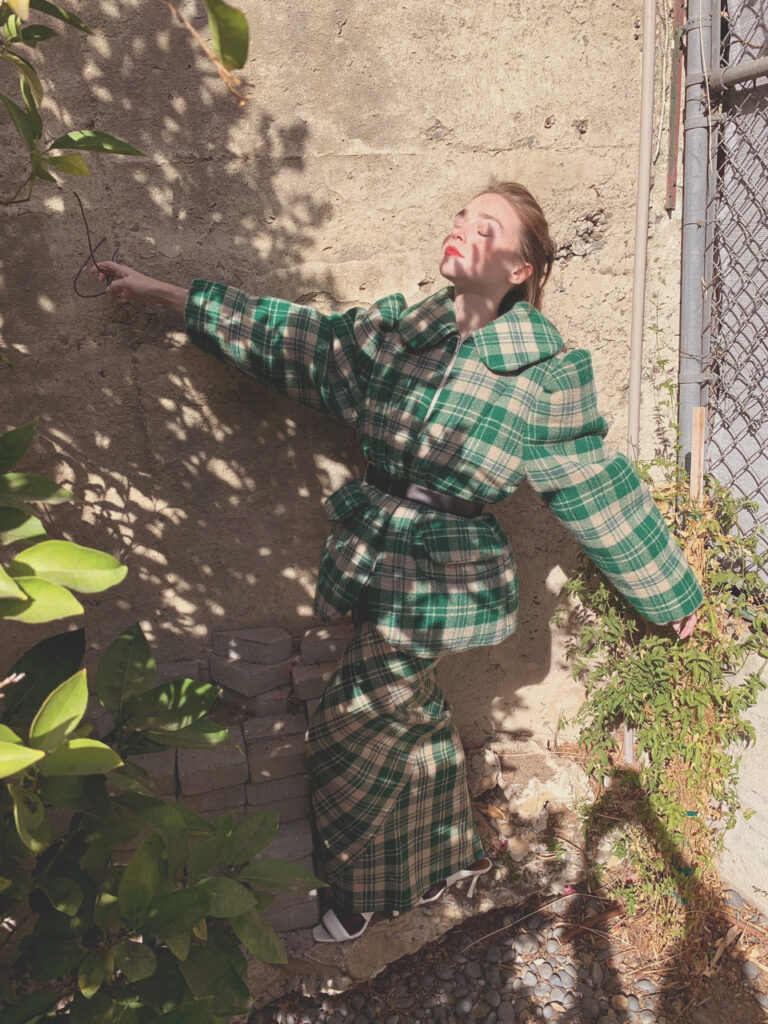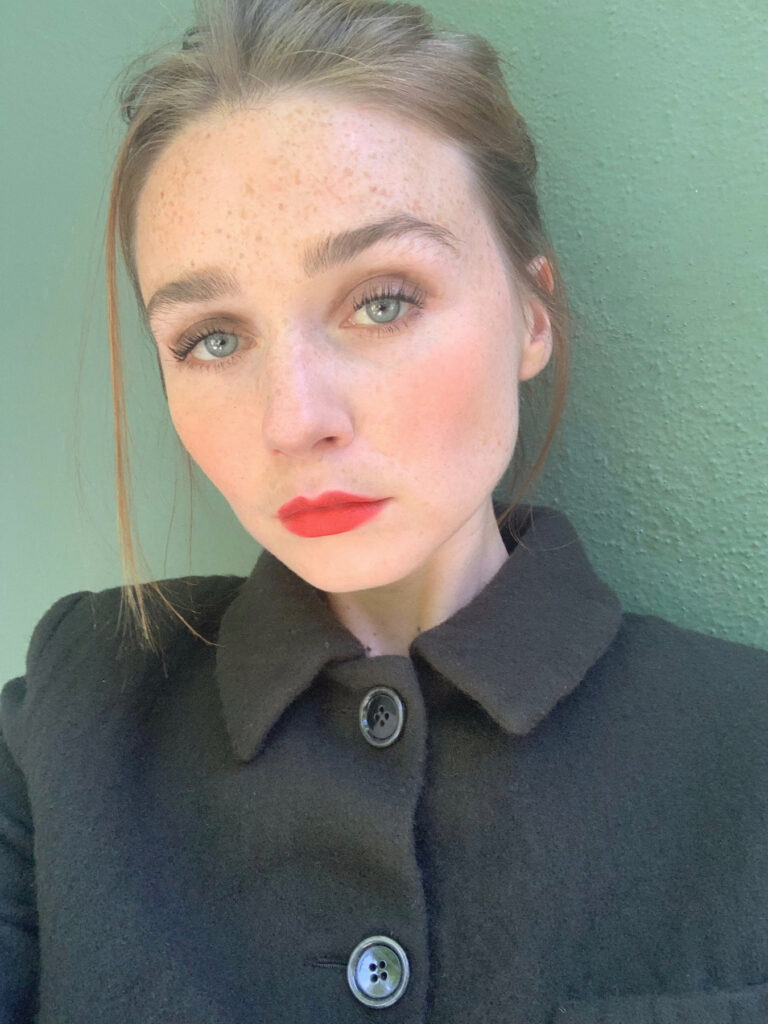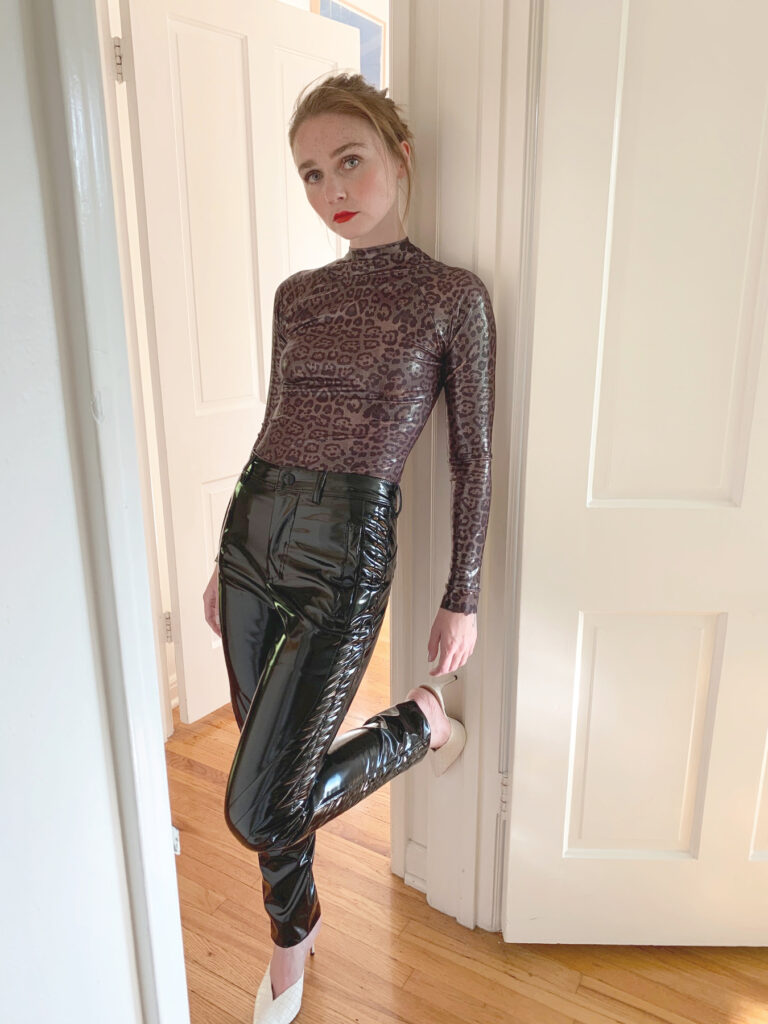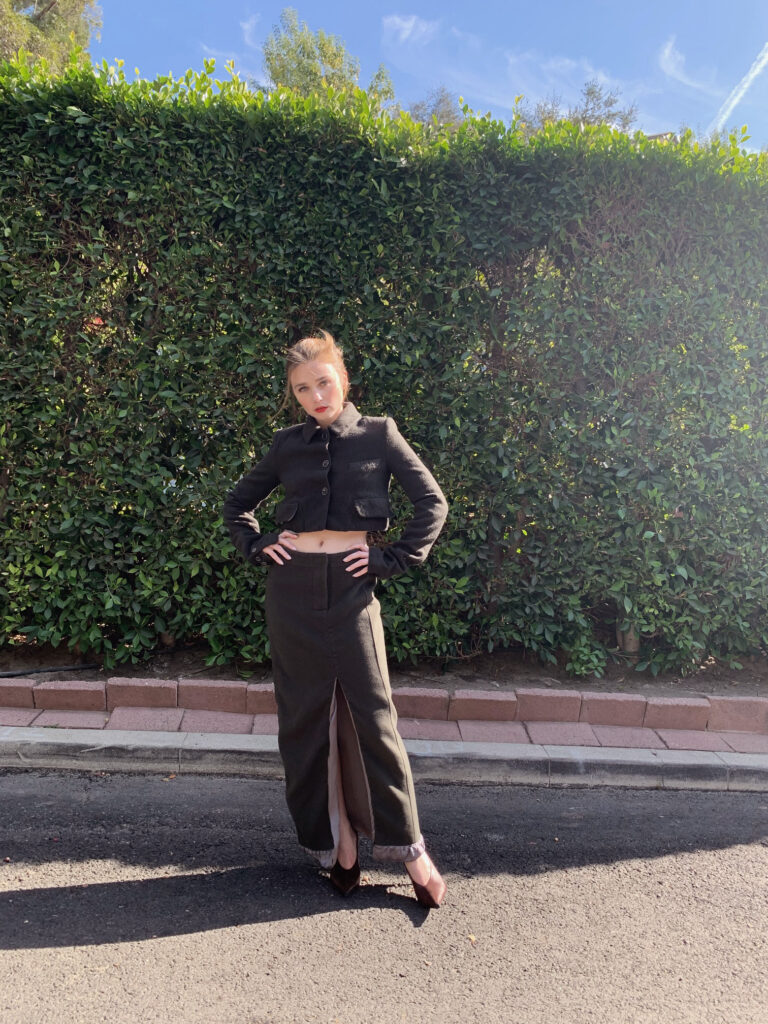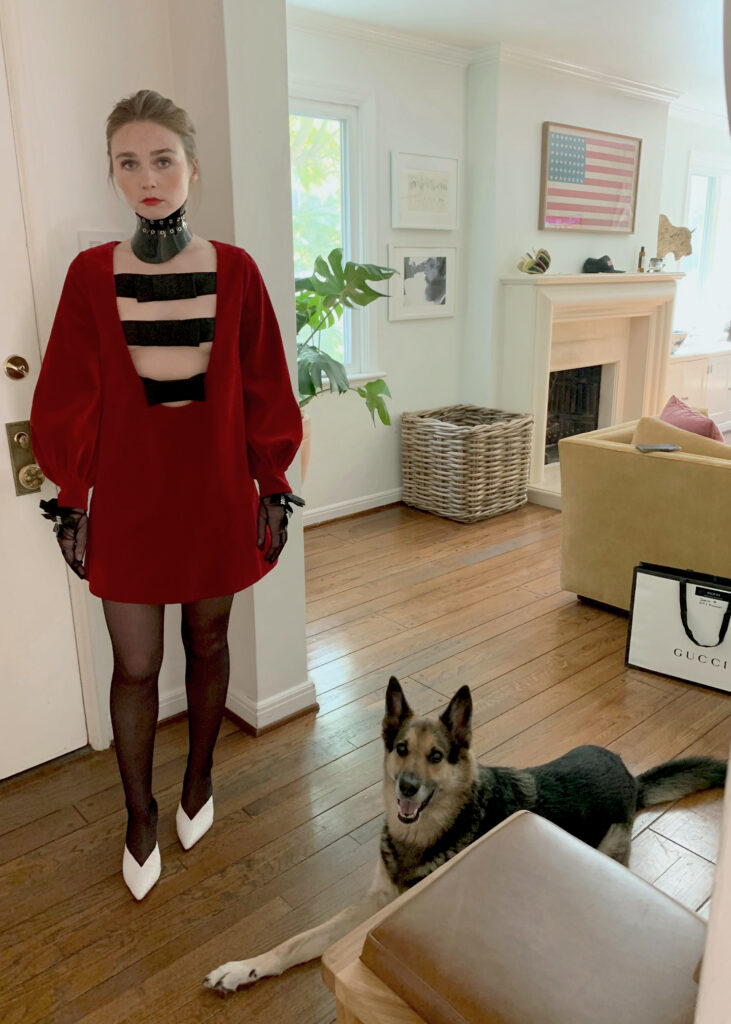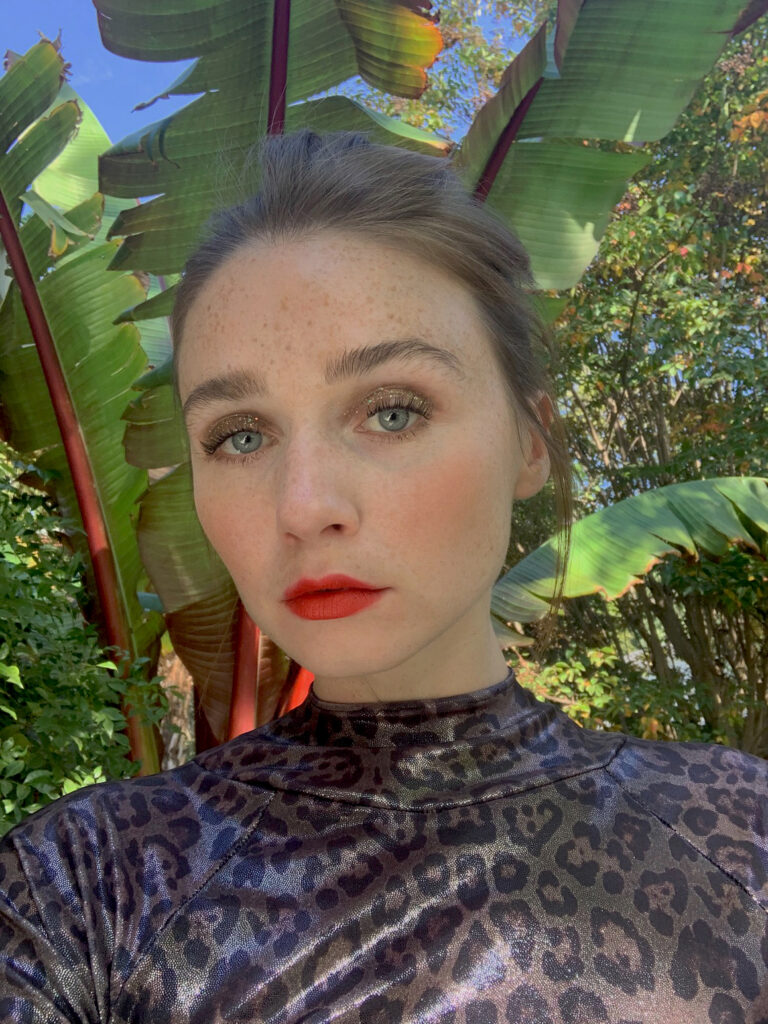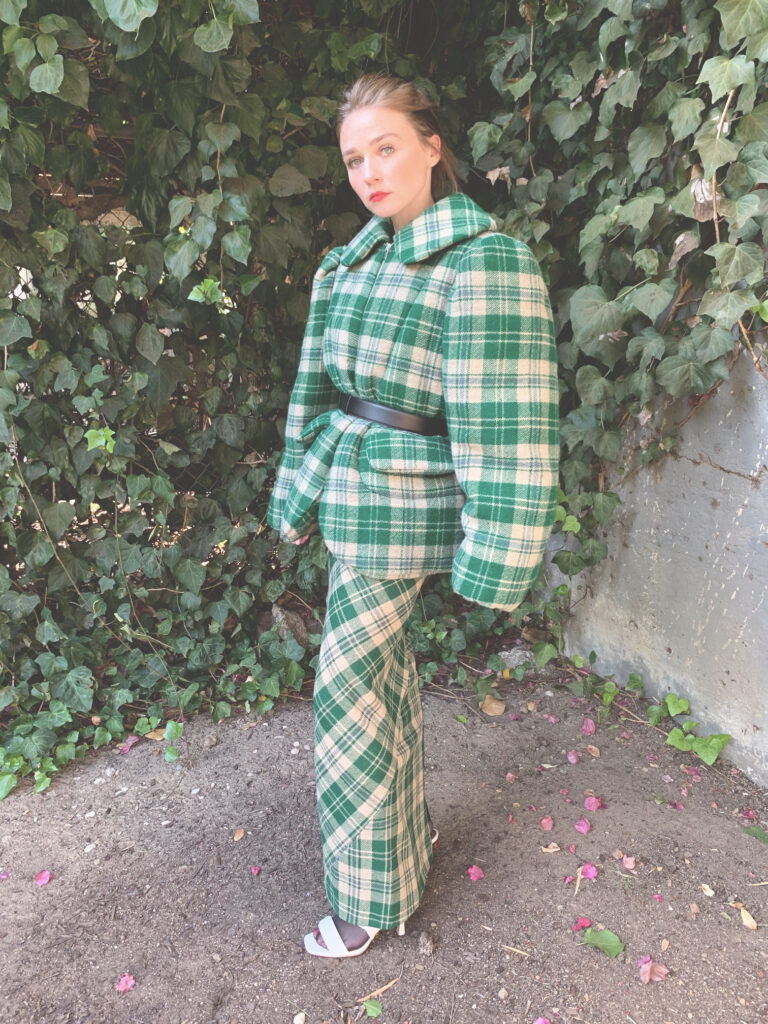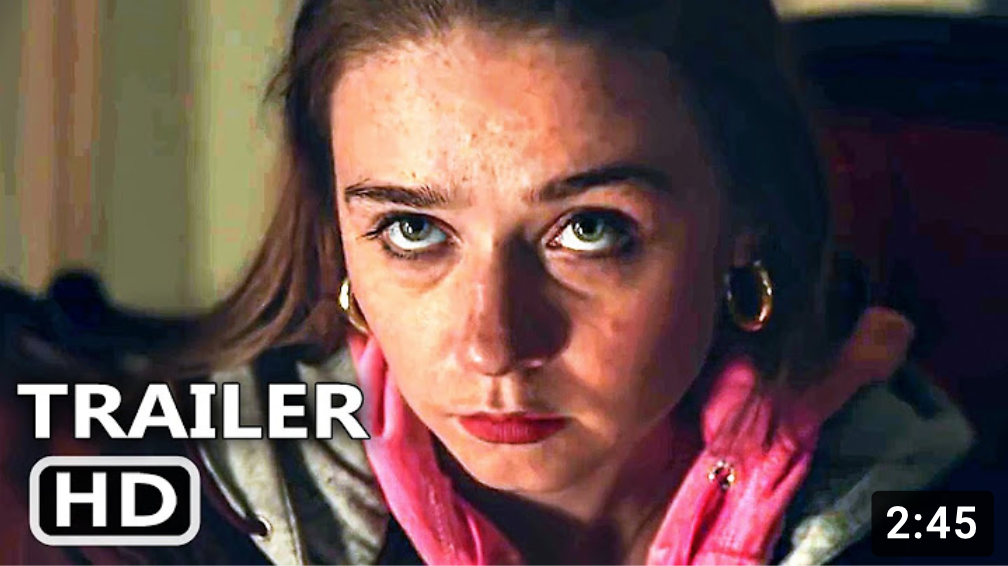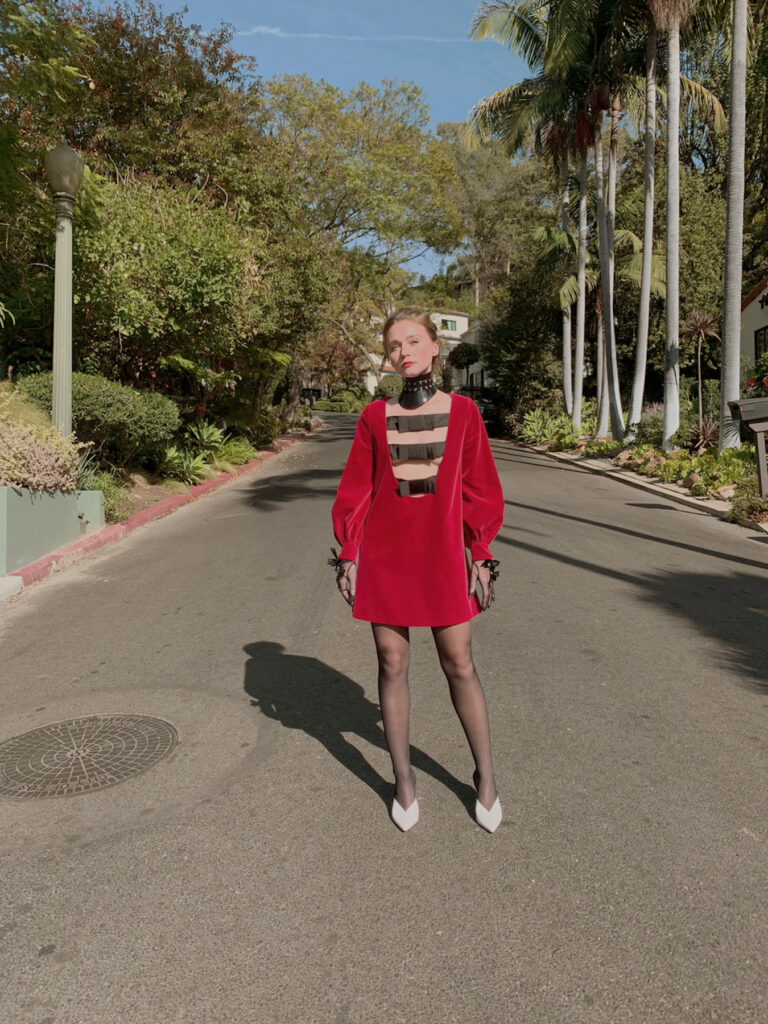
JESSICA BARDEN
In Award Winning Series
“The End of the F***king World”
and her new Films:
“Holler” & “Jungleland”
Photography MAX WINKLER
Creative Director & Interview by
DEBORAH FERGUSON
DF: Can you give me a brief outline of when you decided to become an actress back in the UK?
JB: I wanted to be an actress pretty much from being a child. I think a lot of people say that. I loved watching movies. I loved “The Wizard of Oz.” When watching an old movie when as a child, you don’t really think they are acting. You think it is real life. My parents told me, “This movie was made in the ‘30s and none of these people are alive anymore.” It seemed magical to me. I loved that you could be different people and experience different things in life, so that’s what I wanted to do. I have done it since I was 6 or 7-years-old.
DF: Can you share a bit about your home, as it is quite a unique part of the UK.
JB: I am from Wetherby in Yorkshire. I ended up staying in America for COVID-19 and have been in Los Angeles this entire year, which couldn’t seem more different than the town I grew up in. [Yorkshire] is in the countryside where everybody knows each other and are so friendly. People don’t even lock their houses. Finding myself in LA, at the heart of this industry is so different. However, a lot of people that grow up in LA stay here as well [as Yorkshire] so it has a very homely feel to it. I am very lucky that people have been so welcoming to me here.
I miss walking outside and turning down a street and suddenly being in the middle of a field. You can go on amazing walks. I miss fish and chips a lot, but have been able to find good fish and chips here. I miss the people. The people from Yorkshire are really unique.
DF: I want to talk about your work in the two films: “Holler” and “Jungleland.” What attracted you to these types of roles, as they seem to have a similar struggle.
JB: I made “Jungleland” 6 months before Holler, but I read Holler a long time before I made it. The last few years, because of Trump, working class America has been so prominent in the media. Being a working class person from England, I think it was very natural that I had an interest in it. I felt that it was important that I try to understand what someone like me is experiencing in a different country.
I loved “Holler” the first time I read it. It’s about a young woman wanting more from her life, and what happens when a working class woman wants that. And how difficult that is for women in general. A lot of time it is hard for women to say that they want a job, to be confident in themselves, and expect more from their lives. I wanted to go to Ohio and learn about scrap metal trade. I wanted to see a completely different life and learn about it and meet people there.
With “Jungleland,” it was a young woman from a background of which I recognized some parts in myself. She asked the question, “Why can’t I do something more than this?” But in such a different way than Ruth in “Holler.” I also really wanted to work with Charlie [Hunnam] and Jack [O’Connell], two English actors that I admire. I loved working on both of those movies. I am very proud of them.
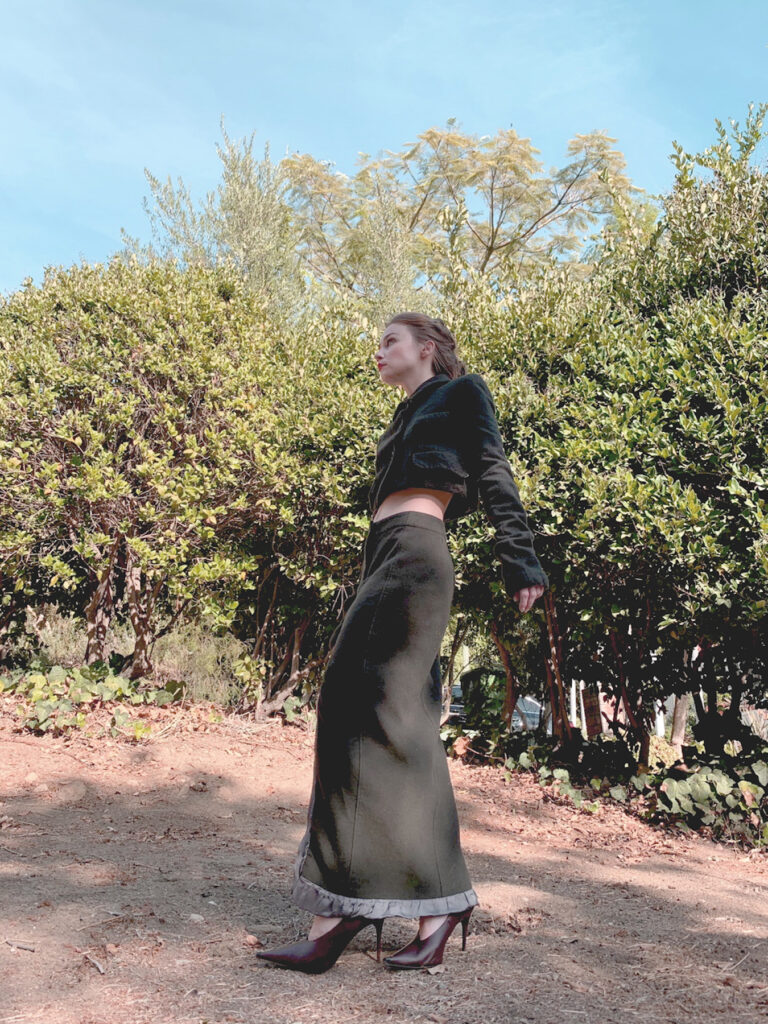
Jacket, skirt, and heels Acne Studios
DF: Can you share a little bit about what it was like working with Jack and Charlie, as the 3 of you had to become Americans for the film.
JB: Everybody worked quite differently. Charlie is so committed. He had a lot of rehearsals, and really studies. Jack did so much boxing. He was doing the physical stuff for months before. I went to Massachusetts about a week before we started filming. We had a dialect coach, Wendy Overly. One of the best dialect coaches I’ve worked with. She passed away this year. She was amazing and she coached dialect on all of the movies we’ve seen come out of Massachusetts. Really, it was all Wendy.
DF: Can you share one of your most memorable moments while making “Jungleland?”
JB: Working with Jack and Charlie on set, everyday was different. We are 3 really big characters, so it created a lot of really entertaining situations. Howver, my favorite day was when we worked with John Cullum, who plays Yates. He is a legend and was so charming and kind. It felt like we were around royalty. He had met Richard Burton and Elizabeth Taylor. I loved spending the day with him.
DF: When I was watching “Holler,” I saw you evolving from one headspace to another. It was beautiful how you delivered it: subtle and deep. For me, “Holler” was very poiniant and I liked that you addressed the working class struggle. Would you describe it was coming to age?
JB: It is definitely a coming-of-age film. It probably feels strange to call it that, because it feels more depressing than we would want a coming-of age movie to be. I also see it as really hopeful. I think the movie has the potential to really mean a lot to people that need it. I think a lot of people will relate to the movie. We wanted to make it to inspire people and to say, “Don’t count somebody out just because of where they come from.”
DF: There was some intense scenes. Were these rehearsed or coreographed ahead of time?
JB: No. This movie was so low-budget. It was done on film, which costs a lot of money. That is why the movie looks so beautiful. We didn’t have a lot of time because the weather was not on our side. The snow was real. What you see in the movie, really happened and happened for the entire time. We had to move very quickly. Nicole didnt want us to feel rehearsed, she wanted it to be totally in the moment. We had to embrace the environment we were in. It never felt unsafe in any way. It was just a once in a lifetime experience.
DF: It felt real. I appreciate films like that, and actors that are willing to take that on. Speaking of, were there any particular moments in that film where you either felt challenged because of the conditions, or you just thought “what an amazing day.”
JB: Our first day we filmed was hard. It was in the middle of a blizzard that had closed down half of the country and people passed away in. There were moments that I thought, “what are we doing?” It was extremely challenging. It was the hardest job that I have done. But there were moments that it was just amazing. I was really grateful to be there.
DF: You are in LA now. Tell me a few of the things in your life that have changes wince COVID-19.
JB: I had never cooked before. I am enjoying finding and cooking recipes. Everything that I have taken up this year will sound so boring and normal to everybody else. But truly, I had never prioritized it before. I was obsessed with work. I just have been doing normal things that I should have been doing anyways. I love doing boxing. My entire life I have only been doing things for a job. If I learned to play piano, it was for a movie. It does feel great doing something just because I enjoy it. It did get kind of stressful, because I don’t know if I am going to have a job in the same way that I did before. Everyone is thinking that way, whatever your job is. So I just started doing other things, or it would just be too depressing.
DF: I know you love music. Has that been anything that you have explored anymore? How are you engaging in that passion of yours right now?
JB: I just go on a lot of walks and listen to music, really. I just watched the Bee Gees documentary, which was so good. I have more time to discover new music. I haven’t done anything or gone anywhere, purely because I never know about it until after its happened. I guess I am out of the loop.
DF: What about football? What club do you support?
JB: I support Leeds United. Basically, at the start of COVID-19 I was homesick, so I started watching documentaries about Leeds. I just wanted to feel connected to my brothers in some way, so I started watching football again. I would Instagram when they were playing. I don’t think you see a lot of female supporters of football in the media, so I don’t want to follow the same rules as the guys anyway. Apparently I break some of the rules in the way that I talk about football. But that wouldn’t be new for me.
DF: I do miss the pub culture. Do you miss that? Do you miss just hopping into a pub to catch the end of a match?
JB: Yeah, there is a great pub in Hackney from when I used to live in London, called the Chesham Arms. I love the woman who owns it. It is one of those old school pubs that is just next door to a house. Pubs don’t exist here, so I would love to do it again.
I went in there once when I had a cold. Without asking, she made me a hot whisky with lemon in it. That is why pubs are amazing.
DF: You probably haven’t seen your family in a while. Do you hope to connect with them before you jump on your next project? Or get back to the UK?
JB: I don’t think I will be able to see them until at least the middle of next year. I speak to them a lot. I actually have more time to speak to them now, even though I can’t see them. Your family is your family. As long as you are having a good time, they support you.
DF: You are so gorgeous and have potential to work with fashion brands. Have you found a style or types of clothing that you are getting into?
JB: When Gucci asked me to go to Milan Fashion Week 3 years ago, I went to a fitting. That was the first time that I had worn designer. I didn’t expect to do photoshoots like this. Gucci was the first thing I had ever worn that wasn’t from Topshop. I don’t feel like I have a style. I just have 2 settings: When I am not working, I want to feel cozy all the time. When it comes to dressing up, I kind of want to feel like I am a character. I want to wear clothes that make me feel like a different person, like I would in a costume. I just try to have fun, because I didn’t expect to be involved in fashion in this way.
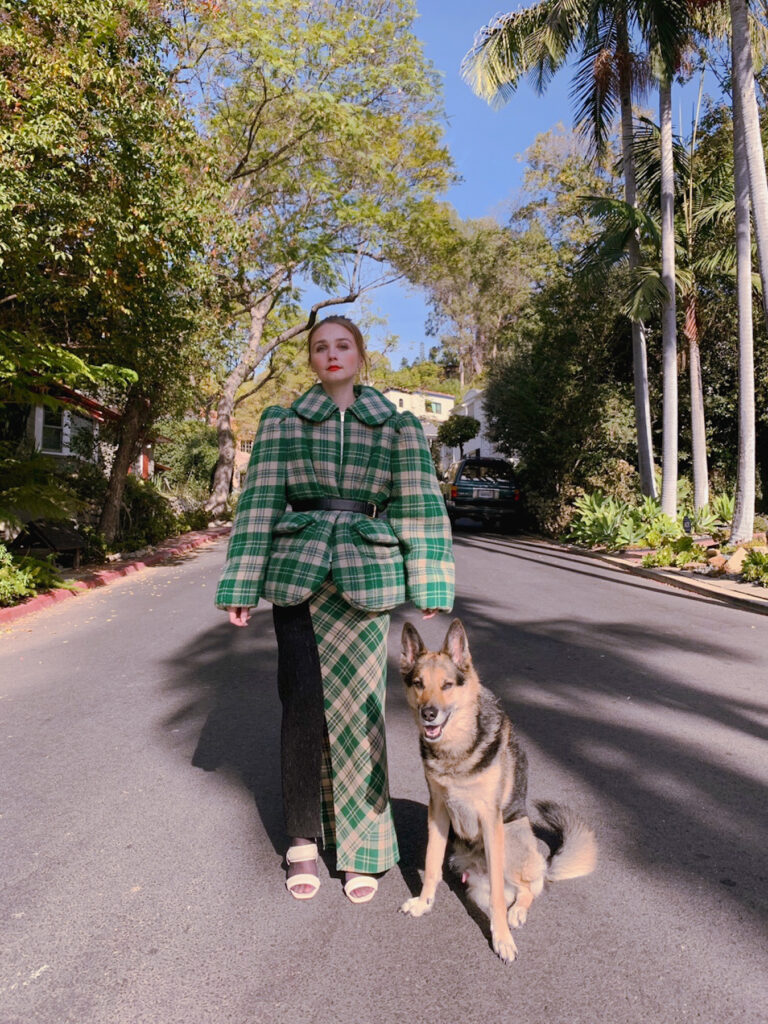
Photography
Max Winkler
Creative Director, Fashion Editor and interview by
Deborah Ferguson
Interview edit, transcription, and web layout
Allie King
Makeup and Hair consultation
Jo Strettell @ Tracey Mattingly
using![]() Retrouve Nutrient Face Serum
Retrouve Nutrient Face Serum
Thank you
ViewPoint LA, Paramount Studios

